The Kingdom Read online
Page 3
‘Egil?’
He stiffened and stopped. ‘Yeah?’
‘Looks like someone’s had fun winding the drying paper round pump number 2.’
‘I’ll fix it, chief.’ He smiled and went out.
I sighed. It isn’t easy to find good workers in a little village like this. The clever ones head for Oslo or Bergen to study, the hard workers to Notodden, Skien or Kongsberg to earn money. If I fired him he’d be straight on the dole, and he wouldn’t be eating any fewer sausages, the only difference being he’d be standing on the other side of the counter and paying for them. They say obesity is mostly a small-town problem, and it’s obvious how easy it is to start comfort eating when you’re working at a service station, and everybody who calls in is heading someplace else, to somewhere you tell yourself has to be better than this, in cars you’ll never be able to afford, with girls you wouldn’t even dare to talk to unless it was at the village hop and you were pissed. But soon I would have to have a word with Egil. Head office wasn’t interested in the likes of him, only in the bottom line. It’s fair enough. In 1969 there were 700,000 cars and more than 4,000 service stations in Norway. Forty-five years on the number of cars had almost quadrupled, but the number of service stations more than halved. It was tough for them and tough for us. I kept abreast of the statistics and knew that in Sweden and Denmark over half the surviving service stations were already automated and unmanned. The widespread pattern of settlements here in Norway means we aren’t there yet, but it’s obvious that even here, petrol pump attendants are a dying breed. In actual fact, we’re already extinct. When was the last time you saw one of us putting petrol in a car? We’re too busy flogging frankfurters, colas, beach balls, barbecue charcoal, windscreen cleaner and bottled water that’s no different from what comes out the tap but comes in by plane and costs more than the videos we’ve got on offer. But I’m not complaining. When the service station chain showed an interest in the car repair workshop I had taken over at the age of twenty-three, it wasn’t because of the two petrol pumps I had out on the forecourt or because the place was doing well financially, but on account of the location. They said they were impressed at how I had held out for so long; local car repair shops had disappeared from the map a long time ago, and they offered me the job of station boss along with a bit of small change for the property. I could maybe have got a little bit more, but we Opgards don’t haggle. Still not thirty, I felt as though I was already finished. I used the small change to have the bathroom built on the farm so I could move out of the bachelor’s bedsit I’d made at the repair shop. There was plenty of room on the site so the chain built a service station next door to the repair shop, which they left up, and modernised the old car-wash.
The door banged shut behind Egil and I recalled that head office had agreed to the automatic sliding doors I had requested. The head of sales who visited every fourteen days was all smiles and bad jokes. Now and then he’d lay a hand on my shoulder and say, as though it were confidential, that they were satisfied. Naturally they were satisfied. They read the bottom line and saw that we were putting up a good and profitable fight against extinction. Despite the fact that the forecourt around the pumps when Egil was on night shift weren’t always spic and span.
Quarter to six. I stood brushing the buns that had defrosted and risen during the night and it got me thinking about the good years when I was down in the grease pit and oiling the cars. Working hard. Knowing that my reward awaited me, assignations up at the mountain cabin, the secret no one must find out. I saw a tractor approaching the car wash. Knew that once the farmer finished washing the monster I would need to wash and hose down the floor. As head of the place I had full responsibility for the hiring and firing, the bookkeeping, the pep talks with staff and all the rest of it; but guess what takes up most of a service station boss’s time? Cleaning up. With baking buns a good number two.
I listened to the silence. Although it’s actually never silent – there’s a steady, rushing symphony of sounds that doesn’t stop until the weekend is over, the cabin folk are back home, and we start closing the place up at night again. There are coffee machines, sausage cookers, freezers, soft-drinks coolers. They each have their own sound, but the most distinctive is the bread warmer we put the hamburger rolls in. It cackles in a warmer way, almost like a well-oiled motor if you close your eyes and dream back in time a little. Last time the head of sales was here he suggested I consider playing low background music in the shop. Said that research showed how the right sounds could stimulate both the desire to spend money and the appetite. I nodded slowly but said nothing. I like the silence. Soon the door will open. Probably a tradesman, it’s generally tradesmen who want petrol or coffee before seven.
I watched the farmer filling up his tractor with the duty-free truck diesel. I knew a splash of that was going to end up in the tank of his own car once he got home, but that was a matter between him and the police, I really didn’t care one way or the other.
My gaze moved on past the pumps, across the road, the cycle and footpath, and landed on one of the wooden houses typical of the village, three floors, built just after the war, a veranda facing out across Lake Budal, window dirty with road dust, a large poster nailed to the wall advertising haircuts and a solarium in a way that probably gave passers-by the impression that the cutting and the sunbathing went on simultaneously, as people say. Something done in the living room of the people who lived there. I’d never seen anyone other than locals going in there, and everyone in the village knew where Grete Smitt lived, so the actual purpose of the poster was unclear. Now I saw Grete standing by the side of the road, freezing in her Crocs and T-shirt, taking a good look left and right before crossing over to our side.
It was only six months ago that a driver from Oslo who claimed he never saw the fifty kilometres an hour speed-limit sign had mown down our Norwegian teacher a little further along the road. There are advantages and disadvantages to running a service station in a village. The advantages are that the locals do their shopping here and that the speed limit of fifty means out-of-town cars can turn into the station on impulse. When I had the repair shop we also contributed to the local economy because any out-of-town customers who needed bigger repair jobs would eat at the cafe and spend the night at one of the camping cabins down by the lakeside. The disadvantage is that it’s only a question of time before you’ll lose the traffic. Motorists want straight roads and speed limits of ninety, they don’t want to be crawling through every little village they pass on the way to their destinations. Plans for a new main road that bypassed Os had been ready for a long time, but so far we had been saved by our geography; it had quite simply been too costly for the transport authorities to drive a tunnel through the mountain. But there will be a tunnel, as surely as the sun will blow our solar system to pieces in two billion years’ time, and it’ll come a lot sooner than that. Ending up in the back of beyond would of course mean the end for all of us who made a living from the through traffic; but for the rest of the village too, the shock waves would be pretty similar to when the sun says goodbye. The farmers would still milk their cows and raise what crops they could up here on the heights, but what would everyone else do without the main road? Cut each other’s hair and tan themselves to a crisp?
The door opened. When we were growing up Grete had been a washed-out grey colour, with flat, dull hair. Now she was still that same grey but with a perm that made her look truly scary, in my opinion. Of course, being pretty isn’t a human right, but the Creator really did skimp on Grete. Back, neck, knees, everything was sort of crooked; even her enormous, crooked nose looked out of place, as though it had been imposed on her narrow face by force. But if the Creator had been prodigal with her nose then He’d been correspondingly mean with the rest of her. Eyebrows, eyelashes, breasts, hips, cheeks – Grete actually had none of these. The lips were thin and resembled earthworms. In her youth she had coated these meaty-coloured
worms with a thick layer of bright red lipstick, and it did actually suit her. But then suddenly she stopped wearing make-up. It must have been around the time Carl left town.
OK, so it’s possible others didn’t see Grete Smitt like I did. Maybe she was attractive in her own way, and what I saw when I looked at what was on the outside was coloured by what I knew about the inside. And I’m not saying Grete Smitt was actually evil, I’m sure there’s some psychiatric diagnosis or other that gives a more flattering definition, as people say.
‘It’s sharp today,’ said Grete. By it she presumably meant the north wind. When it came sweeping down through the valley it always carried with it the smell of glacier and a reminder of summer’s evanescence. Grete had grown up in the village, but using a word like it was probably something she had from her parents, who had come here from the north, ran the camping site until it went bust and then lived on social security after both of them had been diagnosed with a rare form of peripheral neuropathy as a result of diabetes. Apparently it makes you feel as though you’re walking on splintered glass. Grete’s neighbour told me neuropathy isn’t contagious in any way, so this must have been a statistical miracle. But statistical miracles happen all the time, and now both parents lived on the top floor, directly above the poster advertising ‘Grete’s Hair and Sun Salon’, although you didn’t see them often.
‘Carl back?’
‘Yes,’ I answered, even though I knew it wasn’t a Yes/No question. It was a statement with a question mark attached asking for further information. I had no intention of providing that. Grete’s relationship with Carl wasn’t healthy. ‘What can I get you?’
‘I thought he was doing so well in Canada.’
‘Sometimes people get the urge to travel home even when things are going well.’
‘I hear the property market out there is very unpredictable.’
‘Yes, it either goes up very quickly or not quite so quickly. Coffee? Custard bun?’
‘Wonder what it is that brings a big shot from Toronto back to our little village.’
‘The people,’ I said.
‘Maybe,’ she said, studying my poker face. ‘But then he’s brought a Cuban with him, I hear?’
Now it might have been easy to feel pity for Grete. Parents on social security, a meteorite crater for a nose, no customers, no eyebrows, no husband, no Carl and apparently no desire for anyone else. But then there was that hidden reef of evil you didn’t notice was there until after you’d seen people scraping up against it. Maybe it was Newton’s law about every action having a corresponding reaction, that all the pain she suffered had to be passed on in turn to others. If Carl hadn’t screwed her beneath a tree when he was young and been drinking at a party, maybe she wouldn’t have turned out that way. Or then again, maybe she would.
‘A Cuban,’ I said, wiping down the counter. ‘Sounds like a cigar.’
‘Yeah, doesn’t it?’ she said and leaned across the counter as though we were sharing forbidden confidences. ‘Brown, nice to puff on and...and...’
Easy to light up, my mind instinctively added, even though what I wanted most was to stuff a custard bun into her mouth to stop the rubbish.
‘...very smelly,’ she finally concluded. That earthworm mouth of hers grinned; she seemed pleased with her analogy, as people say.
‘Only she isn’t from Cuba,’ I said. ‘She’s from Barbados.’
‘Yeah yeah,’ said Grete. ‘Thai, Russian, whatever, a skivvy, I expect.’
I lost it. Couldn’t hide any more how much she was provoking me. ‘Excuse me? What did you just say?’
‘That she’s pretty, I expect.’ Grete grinned triumphantly.
‘What do you want, Grete?’
Grete scanned the shelves behind me. ‘Mum needs new batteries for her remote.’
I doubted that, since her mother had called in and bought batteries two days earlier, picking up her sore feet as though the floor was molten lava. I handed the batteries to Grete and rang it up.
‘Shannon,’ said Grete as she fumbled her card through the terminal. ‘I saw the pictures on Instagram. Is there something wrong with her?’
‘Not that I’ve noticed,’ I said.
‘Come on, you’re not that white if you come from Barbados. And what’s the matter with her eye?’
‘That remote control should go like the clappers now.’
Grete pulled out her card and slipped it back into her purse. ‘See you later, Roy.’
I nodded slowly. Of course we’d see each other later. That goes for everything and everyone in this village. But she was trying to tell me something more, so that’s why I nodded as though I got it, and hoped she wouldn’t bother me with the rest of it.
The door slid shut behind her, but not completely, even though I’d tightened the mechanism. It really was time for a new one. Automatic.
* * *
—
By nine one of the other employees had arrived and I was able to go out and clean up after the tractor. As expected there were huge clumps of clay and dirt on the floor. I had some ready-mixed Fritz heavy-duty cleaner that got rid of most of it and hosed it down, thinking about back when we were teenagers and thought our lives could be turned upside down every single day, and about how our lives were turned upside down every single day, when I felt a prickling between my shoulder blades. Like the heat from one of those red laser beams when the SWAT team has caught you red-handed. So that’s why I wasn’t startled when I heard the low coughing behind me. I turned.
‘Been mud wrestling in here?’ said the sheriff, cigarette twitching between his thin lips.
‘Tractor,’ I said.
He nodded. ‘So your brother’s back?’
Kurt Olsen the sheriff was a thin, bony-cheeked man with a trailer-trash moustache, always with a roll-up in his mouth, tight jeans and the snakeskin boots his father used to wear. In fact Kurt seemed to look more and more like Sigmund Olsen, the old sheriff, who had had long fair hair too, and always made me think of Dennis Hopper in Easy Rider. Kurt Olsen was bow-legged the way certain footballers are, and in his day had been captain of the local team that played in the 4th division. Solid technique, sound tactical sense, could run for the whole ninety minutes even though he smoked like two factories. Everyone said Kurt should have been playing in a higher division. But that would have meant moving to a larger place with the risk of ending up on the bench, and why sacrifice local hero status for that? ‘Carl arrived yesterday,’ I confirmed. ‘How did you know?’
‘This,’ he said, unfurling a poster and holding it up.
I cut off the jet. FOLLOW THE DREAM! was the headline. And below: OS SPA AND MOUNTAIN HOTEL. I read on. The sheriff gave me plenty of time. We were about the same age, so maybe he knew that the class teacher had described me as mildly dyslexic. When the teacher informed my parents of this he mentioned at the same time that dyslexia is often an inherited condition. At this my father had flared up and asked was he insinuating the boy was a bastard? But then Mum reminded him of one of his cousins in Oslo, Olav, who was dyslexic and for whom things hadn’t turned out too well. When Carl heard about the meeting he had offered to be my reading mentor, as he put it. And I know he meant it, that he would gladly have given his time to the task. But I said no. Who wants his kid brother as his teacher? Instead my teacher turned out to be my secret lover, and my school a summer farm cabin high up in the mountains. But that was many years later.
The poster was an invitation to a meeting of investors at Årtun Village Hall. All welcome, it said. Coffee and waffles would be served, and attendance was without further obligation. I got the picture even before I reached the name and signature at the bottom. Here it was. The reason Carl had come home.
There was a title after the name. Carl Abel Opgard. Master of Business. No less.
I didn’t know what to think, only that it
smelled like trouble already.
‘This is on all the bus stops and lamp posts along the main road,’ said the sheriff.
So the sheriff wasn’t the only one. Carl had obviously been up early too.
The sheriff rolled the poster up again. ‘Doing so without permission is an infringement of Paragraph 33 of the Highways Act. Can you ask him to take the posters down?’
‘Why not ask him yourself?’
‘I don’t have his phone number and...’ He wedged the poster under his arm, hooked his thumbs into the belt of his tight Levi’s and nodded in the direction of north. ‘Save me the trip if you do. Will you?’
I nodded slowly, looking up in the direction of where the sheriff wanted to save himself a trip. You couldn’t see Opgard from the service station, could just about glimpse the bend at Geitesvingen, and a grey area at the top of the precipice. The house lay out of sight above and behind it, where the land flattened out. But today I saw something there. Something red. And then I knew what it was. A Norwegian flag. Damned if Carl hadn’t hoisted the flag on a Monday. Wasn’t that what the king did, as a signal that he was home? I almost started laughing.
‘He can apply for permission,’ the sheriff said and looked at his watch. ‘And then we’ll see about it.’
‘OK then.’
‘Right.’ Kurt Olsen raised two fingers to the cowboy hat he should have been wearing.
We both knew it would take a day for the posters to come down, and by then the job would be done. Those who hadn’t seen the invitation would have heard about it.
I moved away and turned on the hose pipe again. But it was still there, that heat between the shoulder blades. The way it had been all these years. Kurt Olsen’s suspicion that slowly and surely etched its way through the clothing, through the skin and onto the flesh, stopping short only when it came up against solid bone. Against willpower and stubbornness. Against a lack of proof and hard facts.

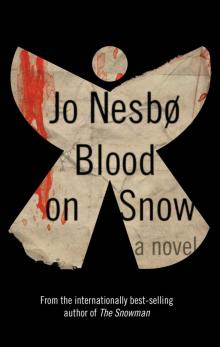 Blood on Snow: A novel
Blood on Snow: A novel Police: A Harry Hole thriller (Oslo Sequence 8)
Police: A Harry Hole thriller (Oslo Sequence 8) Doctor Proctor's Fart Powder: The Great Gold Robbery
Doctor Proctor's Fart Powder: The Great Gold Robbery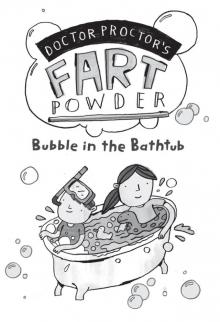 Bubble in the Bathtub
Bubble in the Bathtub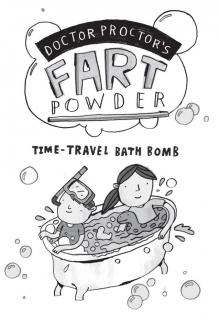 Doctor Proctor's Fart Powder: Time-Travel Bath Bomb
Doctor Proctor's Fart Powder: Time-Travel Bath Bomb The Bat
The Bat Doctor Proctor's Fart Powder: The End of the World. Maybe.
Doctor Proctor's Fart Powder: The End of the World. Maybe. Silent (but Deadly) Night
Silent (but Deadly) Night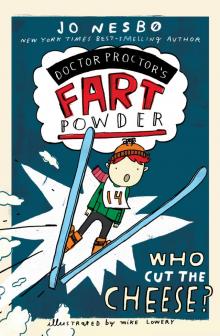 Who Cut the Cheese?
Who Cut the Cheese? Headhunters
Headhunters The Jealousy Man and Other Stories
The Jealousy Man and Other Stories Harry Hole Mysteries 3-Book Bundle
Harry Hole Mysteries 3-Book Bundle The Thirst
The Thirst The Son
The Son The Redeemer
The Redeemer The Kingdom
The Kingdom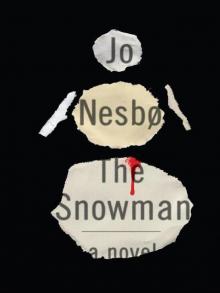 The Snowman
The Snowman The Redbreast
The Redbreast Phantom
Phantom Macbeth
Macbeth The Leopard
The Leopard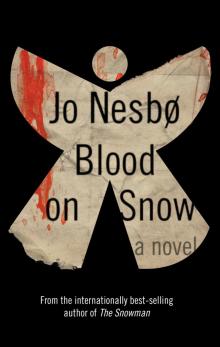 Blood on Snow
Blood on Snow Midnight Sun
Midnight Sun The Redbreast (Harry Hole)
The Redbreast (Harry Hole)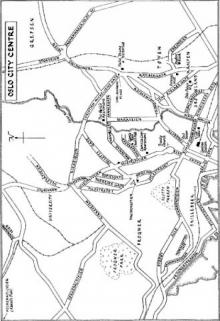 The Devil's Star
The Devil's Star Cockroaches
Cockroaches The Magical Fruit
The Magical Fruit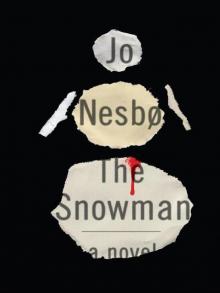 The Snowman: A Harry Hole Novel
The Snowman: A Harry Hole Novel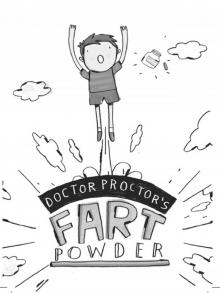 Doctor Proctor's Fart Powder
Doctor Proctor's Fart Powder The Cockroaches
The Cockroaches Knife
Knife Phantom hh-9
Phantom hh-9 The Redbreast hh-3
The Redbreast hh-3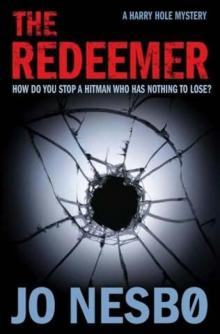 The Redeemer hh-6
The Redeemer hh-6 The Leopard hh-8
The Leopard hh-8 The Leopard: An Inspector Harry Hole Novel
The Leopard: An Inspector Harry Hole Novel The Great Gold Robbery
The Great Gold Robbery Police hh-10
Police hh-10 The End of the World. Maybe
The End of the World. Maybe The Thirst: Harry Hole 11
The Thirst: Harry Hole 11 Nemesis - Harry Hole 02
Nemesis - Harry Hole 02 The Devil's star hh-5
The Devil's star hh-5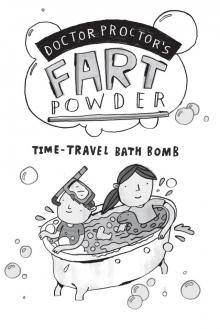 Time-Travel Bath Bomb
Time-Travel Bath Bomb